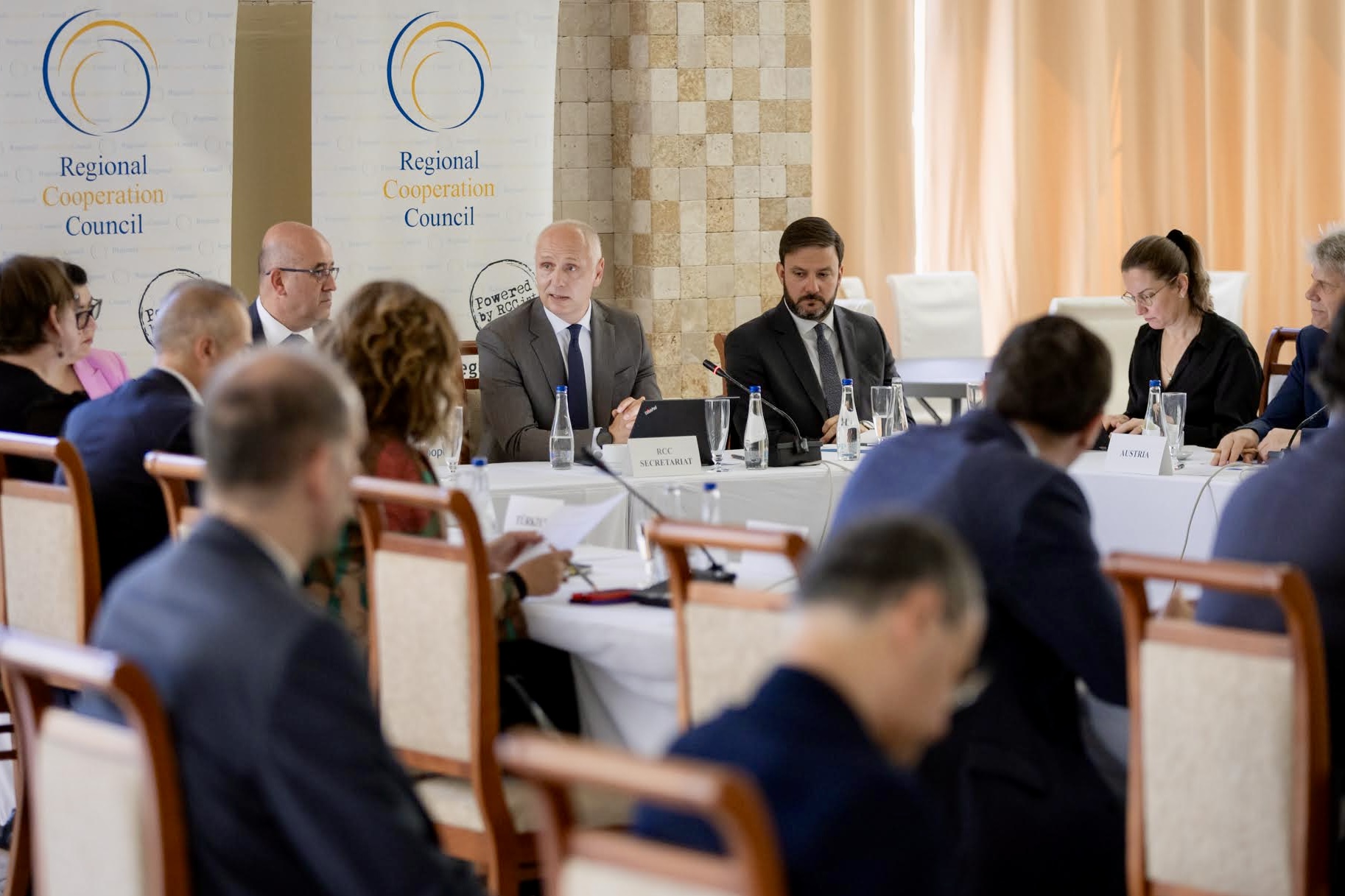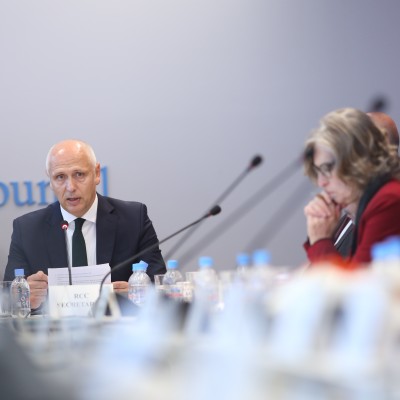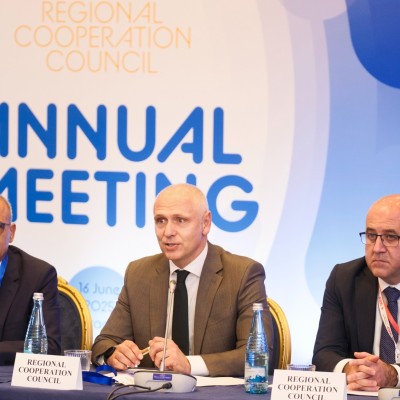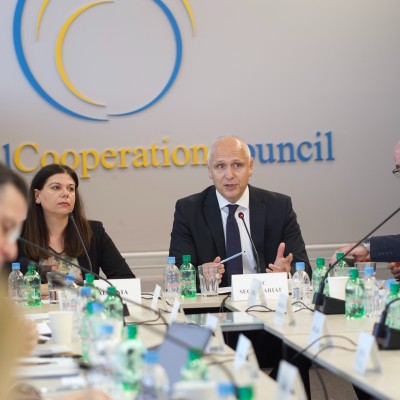Board participants praised the work of the RCC and its Secretary General, expressing strong support for the organisation’s future endeavours RCC Board Accepts the Annual Report and Reviews the New Strategy and Work Programme of the Organisation
14 May 2025

RCC Secretary General Amer Kapetanovic hosting 56th meeting of RCC Board, in Budva on 14 May 2025 (Photo: RCC/Danilo Papic)
Budva - The Regional Cooperation Council (RCC) Board held its 56th meeting today in Budva, marking an important milestone in the region’s cooperation agenda. The Board accepted the Annual Report of the Secretary General, providing a comprehensive overview of RCC’s work and key achievements from June 2024 to May 2025.
The meeting also included the formal presentation of the RCC Strategy and Work Programme (SWP) 2026–2028, outlining the organisation’s priorities for the next three years. The document is expected to be adopted through a written procedure in the coming weeks.
RCC Board participants praised the work of the RCC and its Secretary General, expressing strong support for the organisation’s future endeavours, and particularly highlighting organisation's active role in shaping and delivering the outcomes of the Berlin Process, noting that its achievements are, without a doubt, also the achievements of the RCC.
Gathering RCC Board participants during a week of high-level regional events in Budva, including the 10th EU-Western Balkans Civil Society Forum and the High-level Conference on Labour Migration, the meeting reaffirmed RCC’s role in driving inclusive cooperation and EU-aligned reforms.
In his opening remarks, RCC Secretary General Amer Kapetanović shared reflections from recent high-level visits and engagements across the region and beyond, reaffirming broad political and institutional support for RCC’s mandate. He also highlighted progress on key regional initiatives, including the implementation of the Common Regional Market (CRM), the revision of the Green Agenda for the Western Balkans (GAWB), and the operationalisation of the South East Europe (SEE) 2030 Strategy through a new regional disaster risk insurance network.
“The acceptance of our Annual Report signals not only accountability, but shared ownership of the work we do. With the triennial Strategy and Work Programme now presented, we are setting the course for an ambitious next chapter of regional cooperation, focused on delivery, grounded in trust, and aligned with the region’s European path,” said Secretary General Kapetanović.
The Annual Report provides a transparent review of the RCC’s impact over the past year, while the draft SWP 2026–2028 outlines RCC’s future priorities across regional economic integration, green and digital transition, mobility, and security cooperation. Both documents are set for endorsement at the upcoming RCC Annual Meeting and the SEECP Summit, envisaged to take place on 16 June in Tirana, after which they will be published on the RCC website.
Prior to the Board meeting, the RCC Secretary General briefed Western Balkans National Coordinators on the implementation of the CRM 2 Action Plan and the next steps ahead.
About RCC Board
Chaired by the Secretary General, the RCC Board convenes three times annually, with preparations organised by the Secretary General in collaboration with the SEECP CiO. The RCC Board provides operational guidance and supervision of the organisation in-between its Annual Meetings.



